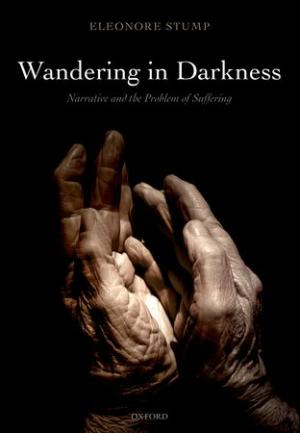The problem of suffering has generally been taken to be a challenge to religious belief because it seems hard to reconcile the fact that there is suffering in the world with the belief that there is an omniscient, omnipotent, perfectly good God. This problem is a very old one in philosophy; in recent decades, philosophers have discussed it with increasing technical virtuosity. In these lectures, Eleonore Stump considers what can be said about the problem if we approach it with a new methodology that lets philosophical examination be broadened and humanized by a consideration of narratives.
Lecture 1: Narrative and the Problem of Suffering
Analytic philosophy is a powerful tool for reflection, but it has its limits. A recognition of those limits suggests that coupling analytic philosophy with a study of narratives would be beneficial for philosophical reflection, especially on the problem of evil. Biblical narratives are particularly helpful in this connection; when they are read with philosophical and literary sensitivity, rather than as revealed theological texts or mere historical documents, they can help us see the problem of evil in a different light.
Lecture 2: Second-person Accounts and the Story of Job
Contemporary philosophers have had a lot to say about the difference between first-person and third-person experiences and the corresponding difference between first-person and third-person accounts. But there is something characterizable as second-person experience, the sort of experience one person has in direct interaction with another, and this is also an important part of human lives. Narratives can be thought of as second-person accounts, communicating second-person experiences. If the story of Job, a classic case of the problem of evil, is examined with attention to the nature of second-person accounts, it yields different philosophical reflections from those generally drawn from it.
Lecture 3: Goodness and the Problem of Suffering: Abraham, Isaac, Hagar, and Ishmael
The story of Abraham’s offering of Isaac has proved fruitful for philosophical reflection, as Kierkegaard’s widely known treatment of it makes clear. But if the story is read in a broader narrative context than that generally considered, even by Kierkegaard, it yields insights useful for thinking about the problem of suffering. Among other things, it focuses attention on one of the divine attributes frequently neglected in philosophical discussion of the problem, namely, divine goodness.
Lecture 4: Samson and Self-destroying Evil
Truly horrible suffering is the sort sufficient to cast doubt on whether the sufferer’s life is a good to him. In thinking about such cases, we generally think only of the suffering of unwilling innocents. But there is another version of the problem of evil which arises from cases in which a person’s own acts are so self-destructive that his life is not clearly a good to him. The story of Samson is an example of such a case. Reflection on this story yields insight into what constitutes a good life for a human being and thus also sheds light on the standard of values which needs to be brought to bear on the problem of suffering.
Lecture 5: Betrayal of Trust: Mary, Martha, and Lazarus
Attempts at theodicy and rebuttals of theodicies tend to focus on candidates for morally sufficient reasons for God’s permitting suffering. Reasons considered often have something to do with benefits to the sufferer, but the benefits discussed typically are relatively simple intrinsic goods for the sufferer alone. The story of Mary, Martha, and Lazarus gives an example of a complicated and relational good which redeems suffering, and so it shows something of the range of benefits that need to be thought about in connection with theodicy.
Lecture 6: The Moral of the Stories: the Problem of Suffering Examined in Narrative Context
Taken together, the stories considered in the preceding lectures offer a picture of the world which shows suffering in a broader context of personal relations and against a more complicated and relational set of values for human flourishing. The stories thus suggest a certain response to the charge that suffering in the world is incompatible with the existence of God.



